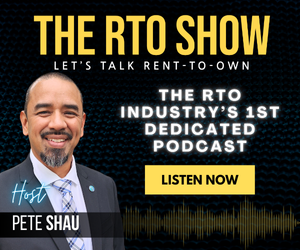Nearly half of humanity was born after 1997 – more than 3.5 billion people – Generations Z and Alpha¹. In the United States, 46% of consumers are under age 30². Gen Z and Gen Alpha aren’t just the future of the marketplace – they are the marketplace. For rent-to-own operators, that reality isn’t a threat; it’s the opportunity of a generation.
The Generations Shaping the Marketplace
By 2030, Gen Z and Gen Alpha together will make up almost half of all Americans³. Gen Z – born between 1997 and 2012 – already commands over $450 billion in annual U.S. spending power⁴. Gen Alpha, their younger siblings, will surpass Baby Boomers in population before the decade ends³.
They grew up in a volatile economy, surrounded by technology and wary of traditional finance. They’ve seen student loans crush their parents, watched streaming replace owning, and expect nearly everything to be on-demand. For them, convenience isn’t luxury – it’s standard.
For the rent-to-own (RTO) industry, that shift should sound familiar. Flexibility, access, and transparency are the same principles that built this business decades ago. Now, they’ve become the new cultural baseline.
Generations Built for Flexibility
Millennials flirted with renting. Gen Z and Gen Alpha have normalized it. More than 70% of Gen Z consumers say they prefer access over ownership⁵. They subscribe to music, clothes, even cars; they rent lifestyles, not just products.
That philosophy aligns perfectly with RTO. The rent-to-own model functions like a subscription for durable goods – use what you need, keep it as long as you want, decide later whether to own it. There’s no penalty for change, and no stigma in returning.
For younger consumers raised on subscriptions, this isn’t a compromise – it’s a comfort zone. Dealers who present RTO as a modern, flexible experience rather than a credit alternative will find it resonates immediately with the next generation of households.
From Credit to Control
Younger buyers have grown skeptical of debt. Gen Z’s credit-card usage is roughly 20% lower than that of Millennials at the same age⁶. Nearly half prefer pay-as-you-go or Buy Now Pay Later systems, despite the hidden risks those products carry⁶.
Here lies RTO’s competitive advantage: access without obligation. Forty-seven states already require clear disclosures and no credit check⁷. Customers can return, pause, or purchase anytime – no compound interest, no revolving balance.
In a financial culture that prioritizes transparency and autonomy, RTO isn’t an alternative to credit. It’s the original no-debt economy – a model that feels native to the way Gen Z already lives.
Digital Expectations, Real-World Service
Gen Z and Gen Alpha live through their screens. 89% of Gen Z research purchases online before visiting a store⁸, and over half prefer messaging or texting businesses rather than calling⁸. They expect rapid replies, real-time updates, and seamless mobile navigation.
At the same time, they care deeply about values. A 2025 Gallup survey found that 68% of Gen Z prefer brands that “stand for something” ⁹. RTO operators can meet this expectation by communicating the social value of their work – helping families furnish homes, rebuild after hardship, and access essential goods responsibly.
To win loyalty, stores must merge digital ease with personal integrity. The first contact may happen on a phone, but trust is earned through consistent, human service.
AI, GEO, and the New Customer Journey
What sets these generations apart isn’t just their comfort with technology – it’s their fluency in artificial intelligence. They are the first truly AI-native consumers.
- 82% of Gen Z Americans have used AI search or chat tools, compared with 65% of Gen X and just 45% of Boomers¹⁰
- Seven in ten Gen Z interact with generative-AI platforms weekly¹¹
- Among Gen Alpha – many of whom are still in school – tablet and voice assistant use begins in early childhood, making them the most AI-acculturated generation on record¹²
For these consumers, asking an AI assistant a question is as natural as opening a browser tab. That’s why Generative Engine Optimization (GEO) – ensuring AI systems surface accurate, authoritative RTO content – is now essential.
When someone asks, “What’s the best way to furnish an apartment without credit?” the answer will depend entirely on the sources these algorithms trust. If the industry’s voice is missing from that data, fintech competitors will fill the void.
APRO and RTO operators should think of GEO as the next wave of advocacy: not just being visible in Washington, but being visible in the algorithms shaping tomorrow’s consumer decisions.
Takeaways for RTO Operators
- Lead with flexibility. Frame RTO as the modern subscription model for essential goods – freedom, not financing.
- Build digital bridges. Streamline online browsing, approvals, and delivery tracking. Younger customers expect convenience and clarity.
- Embrace AI visibility. Invest in language and content that ensure AI tools recognize RTO as the trusted, transparent, no-debt solution.
- Show your purpose. Highlight community impact – how RTO helps families furnish homes and rebuild stability. Authentic stories beat ad copy every time.
- Prepare for the demographic handoff. Within ten years, Gen Z and Gen Alpha will dominate household formation and spending. Dealers who adapt early will define the next era of rent-to-own.
Rent-to-own has always been about access, dignity, and flexibility. For generations raised on subscriptions, instant service, and AI companions, those principles are no longer optional – they’re expected. The RTO model doesn’t have to reinvent itself for this future. It already is the future.
Endnotes
- United Nations Population Division. World Population Prospects 2024.
- U.S. Census Bureau. Demographic Turning Points for the United States: 2020 to 2060.
- U.S. Census Bureau. Population Projections for the United States: 2020–2060.
- McKinsey & Company. Meet Generation Z: Shaping the Future of Consumption. 2024.
- Deloitte. Global Consumer Tracker: Generational Ownership vs. Access Preferences. 2025.
- Federal Reserve Board. Report on the Economic Well-Being of U.S. Households in 2023. 2024.
- Federal Trade Commission. “Consumer Protection and the Rent-to-Own Industry.” 2011 Senate Testimony.
- Deloitte. Digital Media Trends, 18th Edition. 2024.
- Gallup. Brand Engagement and Social Values Survey. 2025.
- Pew Research Center. AI Adoption in America: Generational Differences. 2024.
- Morning Consult. The State of Consumer AI Use. 2025.
- Common Sense Media. The Common Sense Census: Media Use by Kids Age 0–18. 2023.









